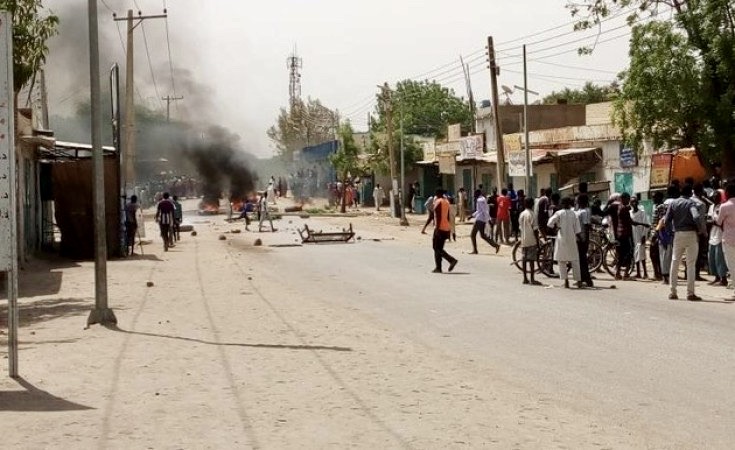RSF in Jazeera: Setting up a local government while killing the locals
4 April 2024
In late March, Siddig Osman made a big announcement in Al Jazeera State: the formation of a civilian administration comprised of 31 members chosen to represent the state’s villages and cities, with Osman himself elected as its chairman.
In a televised interview, Osman stated that a 100+ local council elected the 31 members of the administration, designed to protect civilians and provide a stable food and medication supply. He asked all former state employees in the governmental and private sectors to return to their duties in the state and urged the international community to provide support for his administration.
Osman, a member of the National Umma Party, asserted that the concept originated with the citizens of Jazeera State and received backing from the leaders of the Rapid Support Forces, who, since December, control most parts of the state. The commanders of the Rapid Support Forces (RSF) also promised to coordinate with his administration regarding civilian protection and to withdraw some troops from various locations throughout the state. Notably, this comes after paramilitary Rapid Support Forces leader Mohamed Hamdan Dagalo (also known as ‘Hemedti’) declared in December their intent to allow the people of the state to form their own government.
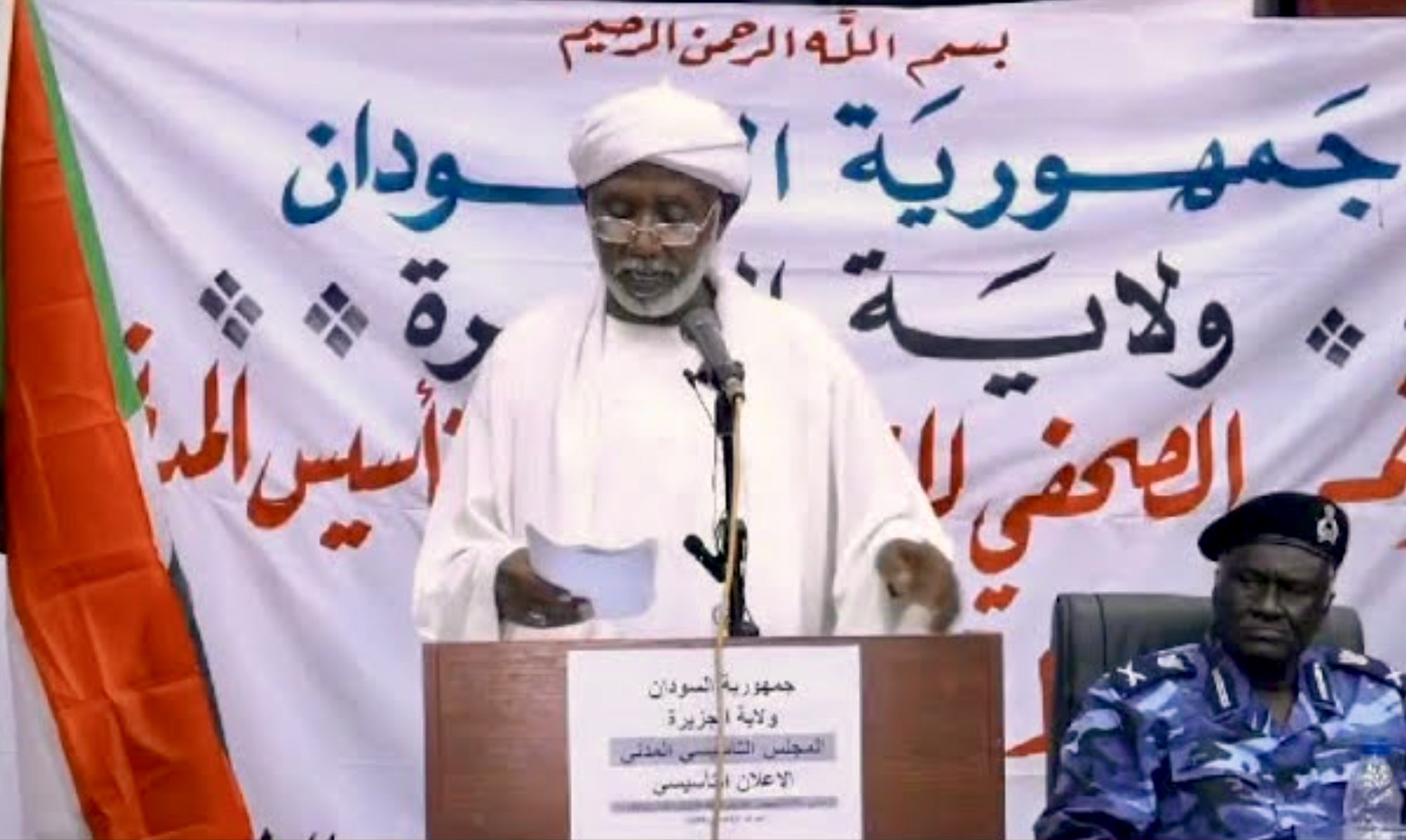
New government, old attacks
Yet while the RSF has formed a de facto civil administration within the state, they have also launched further attacks against local civilians.
Since a war of political and economic dominance between Sudan’s army, led by Lt.-Gen. Abdelfattah al-Burhan, and the RSF’s Mohamed Hamdan Dagalo (known as “Hemedti”) took place in mid April last year, citizens have become the primary target of both warring parties.
The RSF have killed at least 248 civilians and injured roughly 347 people in Jazeera since the armed conflict began, according to a report from the Sudanese Emergency Lawyers Initiative. During the first five days of Ramadan alone, the RSF launched attacks on 28 villages in Gezira, killing at least 43 people, including twelve people in Um Jereis and El Halila villages.
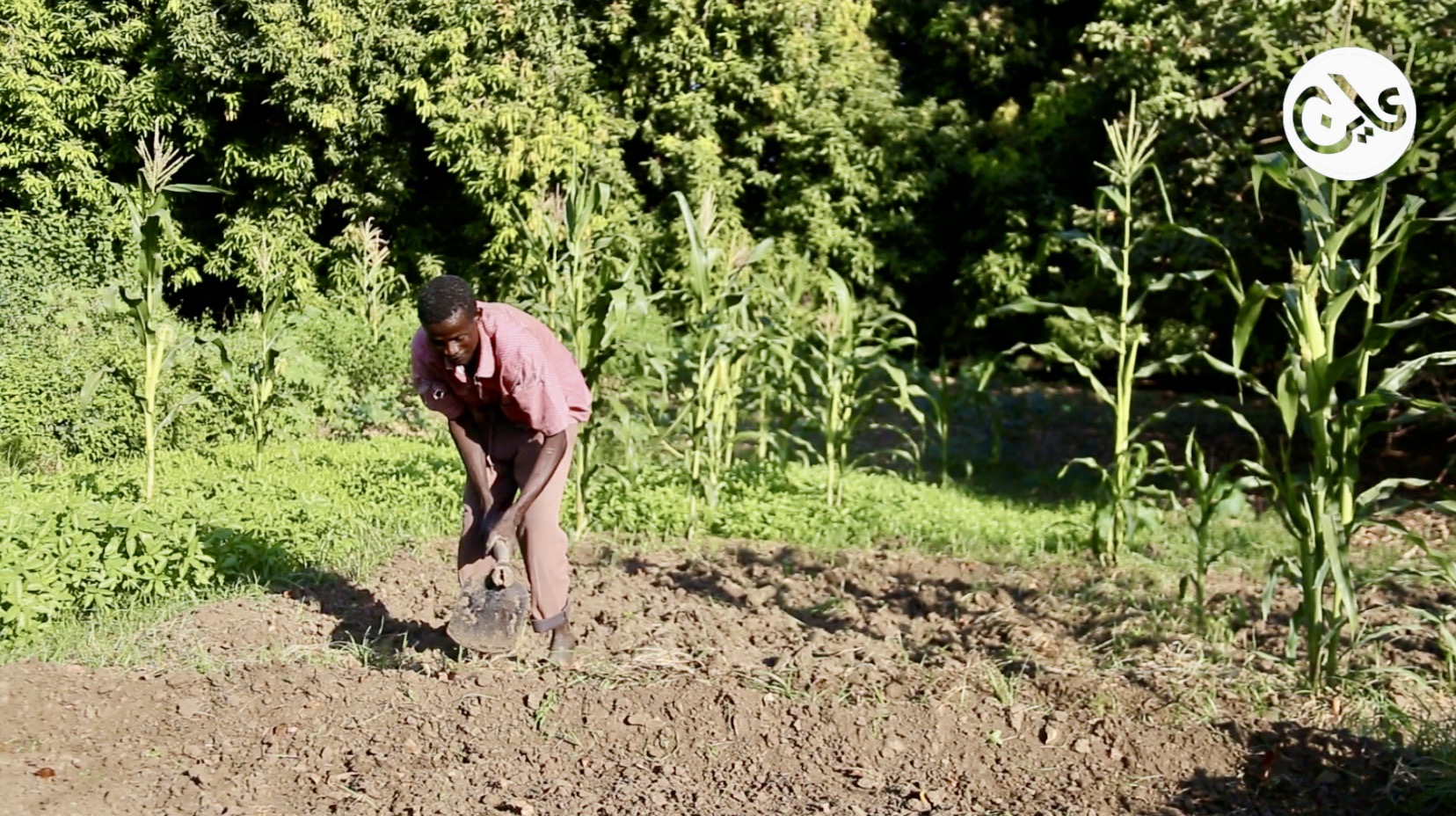
Once the country’s breadbasket, farmers in villages across Jazeera State now face starvation after the RSF have prevented farming and looted harvests. The RSF ask farmers to give them half their harvest; those who refuse lose their entire crops, says Jazeera-based farmer Abddul Rahim. “The Rapid Support Forces stormed farmers’ farms and demanded half of what they had harvested, and whoever refused to give them, they took everything,” Rahim told Ayin. “This quickly dashed farmers’ hopes of getting a little of their produce to fight hunger. The remaining crops will not be enough if the farmers are not able to harvest wheat and plant corn in the next season.”
Since the war started, the RSF and affiliated militias have also committed 43 cases of rape in the state, according to Yousra Ahmed, a legal activist and member of the Together Against Rape and Sexual Violence initiative. The activist suspects the figure could be higher, but access issues and an Internet blackout severely curbed any monitoring on the ground. On 7 February, an Internet blackout isolated citizens from communications for over a month and veiled any human rights violations taking place across the country.
New communication channels
Ahmed believes it is still possible, however, to open communication channels with the announced administration if this provides a platform to advocate for peace and human rights. “It is crucial for me to approach such conversations,” she added. “I will support anything that reduces Sudanese suffering and helps to end the war.”
The RSF stated on social media that they are trying to restrain their armed fighters deployed in the villages of Jazeera State following the increase in violations committed by these forces, but in the eyes of civil activists in the state, chaos persists.
Malik*, 27 years old, miraculously escaped from the grip of the RSF in the town called Medina Arab, in the south of the state. “The Rapid Support Forces stormed the area and killed eight citizens in cold blood. They besiege villages and kill anyone who resists with bullets without blinking an eye.”
Malik says the current prevailing method for the Rapid Support Forces is to gather five to six combat vehicles with soldiers on board, whose purpose is to obtain money, crops, and valuables from citizens. “They have completely gotten out of control.”
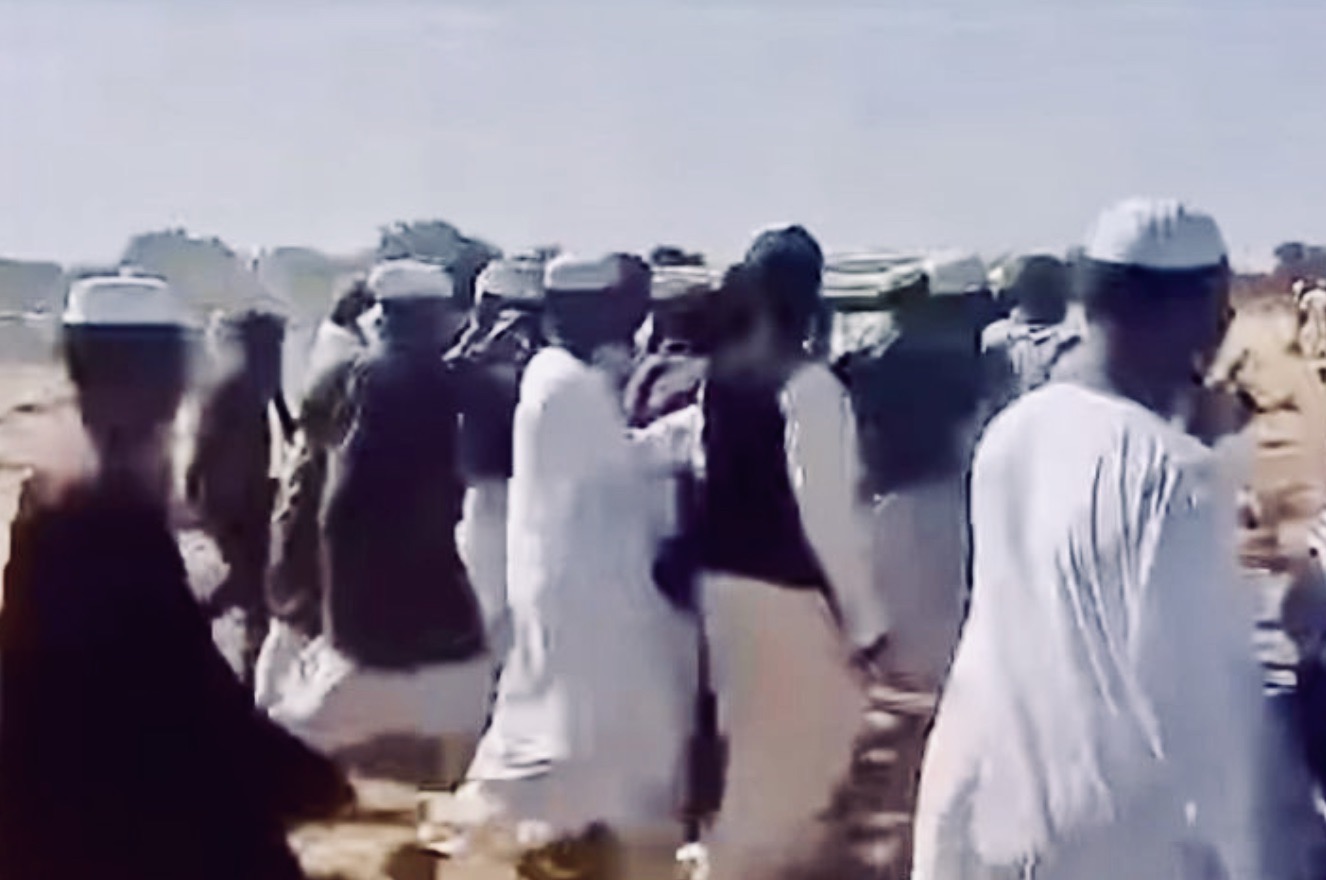
This terrible record of targeting civilians has made the Umma Party quick to denounce any participation in this RSF-appointed government in Jazeera State, despite the de facto government’s chairman being an Umma Party member. “The National Umma Party and its supporters have no affiliation with this nonsense,” according to a statement by the party, “and we emphasise that the individual in question does not hold any position within the party’s institutions.” The National Umma Party Head of the media department, Al Musbah Ahmed, explained further: “Forming a civilian authority in Jazeera State is a decision made by the council of dignitaries of Jazeera State, which was established after the Rapid Support Forces took control of the state.”
The Umma Party is, however, a member of the Civil Democratic Forces Alliance, often known as ‘Taqaddum‘ (“progress” in English), a coalition of civil actors that do not oppose efforts to establish civilian administrations throughout Sudan. “In fact, Taqadum will not oppose the establishment of a similar civilian administration by citizens of any state in Sudanese army-controlled areas to meet their needs,” Taqaddum spokesperson Alaa Nugud told Ayin. The Tagaddum coalition keeps the door open for future communication with the announced administration. “Communication with any party will be possible if we can utilise it for delivering assistance and easing hardship by opening communication channels with the administration in Aljazeera State,” Nugud added.
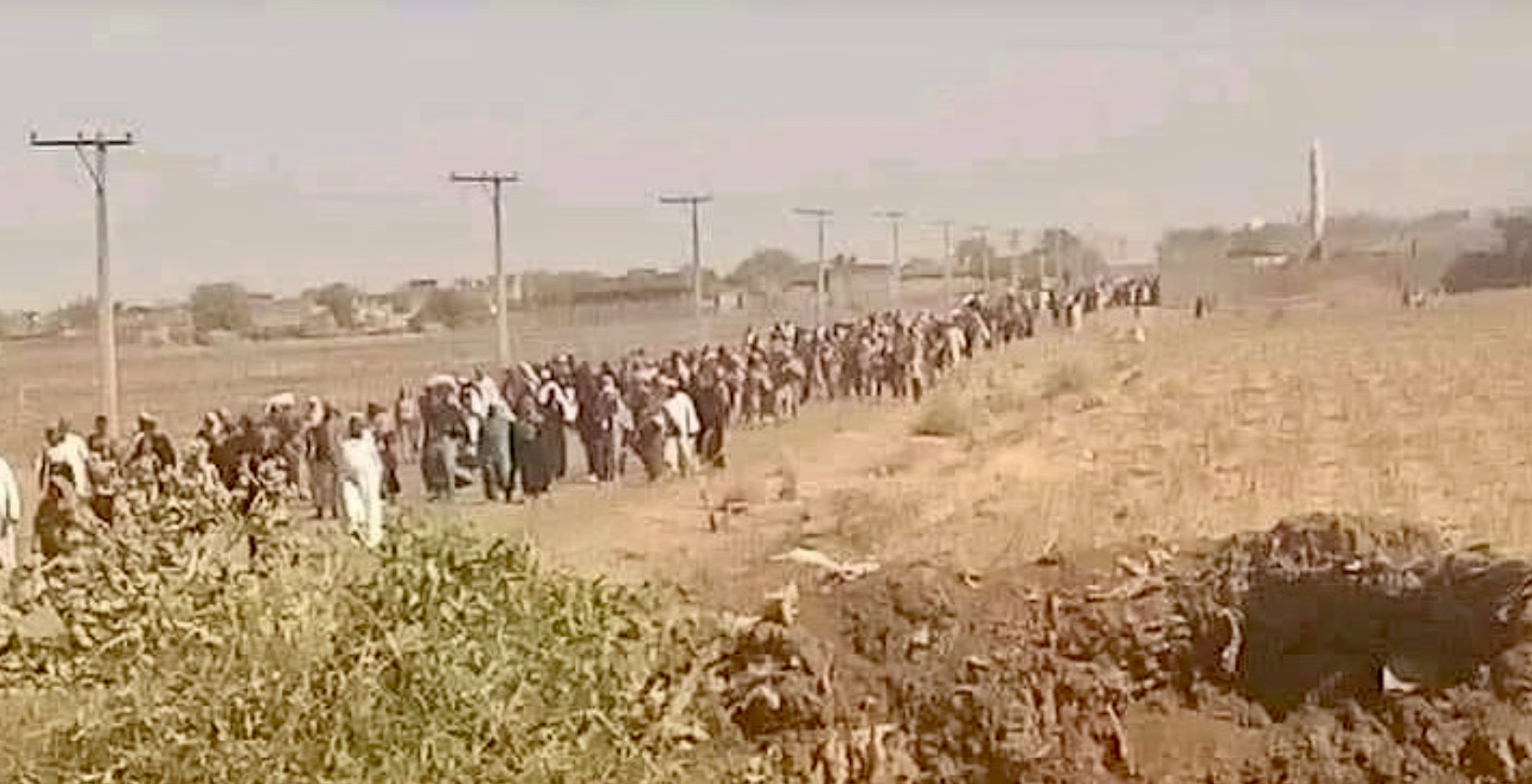
Other residents of Jazeera State, including members of the Wad Medani Resistance Committee, cannot accept any government institutions put in place by the Rapid Support Forces. “We do not recognise the legitimacy of a murderer and rapist; therefore, we do not acknowledge that administration at all and consider it void,” says Wad Medani Resistance Committee member Mujahid Al-Rafee.
Last month, internal clashes within the RSF took place in Abu Quta village, killing several RSF and RSF-aligned militiamen. “What happened in Abu Quta was an internal clash among them,” Al-Rafee told Ayin. “A force from Jebel Aulia invaded the area with the intention of looting and plundering, surpassing their forces assigned to the region. The RSF militia are essentially undisciplined mercenaries who have lost control of their own force.” Given this scenario, the Resistance Committee member says, one can hardly expect a militia that cannot control its own forces to manage an entire state.
While it is still too early to tell whether this civil-led administration under the RSF will offer more channels of communication and usher in much-needed services to the public, one thing is for sure: the majority of the public are not staying put to find out. As of late March 2024, over 555,000 people were displaced from the state, the UN reported. “I lost everything in Wad Medani,” Rashid* said, a former Jazeera resident who fled to eastern Sudan in December. “I don’t understand how they [RSF] expect people to stay put when you have lost everything.”
* Only the first name has been published to protect the sources’ identities.


